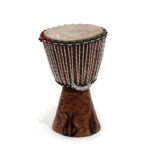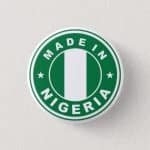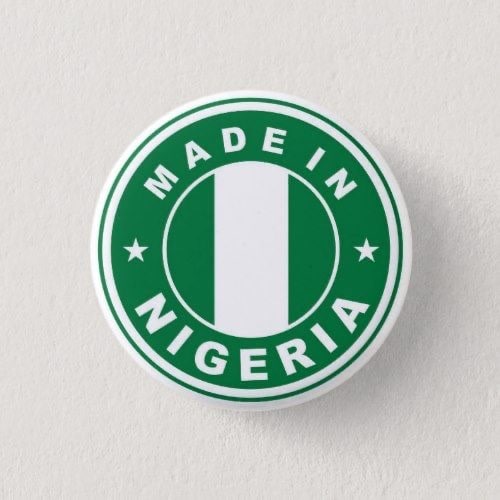Nigeria has the largest economy in Africa with a GDP of $477.38 billion. It is one of the biggest oil producers in the world, but the question is, has it lived up to that status in the manufacturing sector?
The manufacturing sector of the republic began properly during the colonial era with palm oil and other local produce. With the emergence of the oil boom, manufacturing was deserted. After gaining independence in 1960, policies were implemented to facilitate export of products made in Nigeria. Still, the fact that the British did not govern the nation to be an industrial nation made the policies die a natural death.
After decades of living in the shadows of foreign manufacturers, a policy was made to limit the import of foreign products and promote goods made in Nigeria. This pathway should have been put to good use, but more challenges were pressing the manufacturers.
In this article, we’ll explore the challenges and opportunities of made-in-Nigeria products.
Table of Contents
Made-in-Nigeria Products
In the current market view, foreign-made goods have made more names than Nigerian goods. When we hear ‘MADE IN NIGERIA’, as citizens, our minds go to low quality, not up to standard, a copy of something famous, amongst all other bad ideas.
The Nigerian government instituted various policies to discourage the importation of foreign-made goods. These policies include increasing tariffs, import duties, and imposing more bans on certain goods and quotas, despite that, foreign goods strive over locally made goods.
Promoting local and indigenous goods is the best way to help stabilise the economy. It increases the GDP (Gross Domestic Product) rate, which helps create more revenue. This country is abundant with natural resources and creative individuals, but they have been hindered by one thing or another. Nevertheless, there are still glimpses of opportunity for the manufacturing sector.
Read also: Introduction to Product Concept and How to Develop one in a Product Life Cycle.
Opportunities for Made-in-Nigeria Products
Regardless of the drop in the GDP rate of the manufacturing sector, here is a list of opportunities that the country’s products have locally and internationally:
-
Grants and loans
Various companies and institutions give young manufacturers and small business owners opportunities. They offer them business grants, mentorship and training needed to be successful in the industry. Here is a list of various grants that are currently active;
- The presidential conditional Grant Programme and Loan Scheme: The Ministry of Industry, Trade and Investment brought out this initiative to curb the effect of the subsidy removal and promote the use of made-in-Nigeria goods. This gives up to 1 billion Naira loan and 50 thousand Naira grant.
- Tony Elumelu Entrepreneurship Program (TEEP): This grant aims to empower young and creative African youth.
- Lagos State Entrepreneurs Trust Fund (LSETF): They concentrate on providing financial support to its residents for job creation and wealth creation.
- AfriYouth Entrepreneur Empowerment Grant: Youth are provided with the proper financial and intellectual backing to start up a suitable business
- Shell grant: They provide start-up capital for the candidate with the leading business proposal.
-
Restriction policies
The Nigerian government has placed an import restriction on certain goods. This is an opportunity for manufacturers in that field to dominate the market. Below are products that have been stopped from being imported to the country: vegetable oil, poultry (dead, alive or frozen), beef, bird eggs, noodles, water, bagged cement, soap and detergent, amongst many others.
-
Capitalism
This nation practices a mixed economy, but we all know that capitalism is more dominant. Capitalism is an added advantage for made-in-Nigeria goods as no one holds the market, and anyone can be dethroned if enough effort is being put into the business.
-
Demand for local produce internationally
Nigeria is a blessed nation, and there are quality goods made in Nigeria that can be exported. Examples are palm kernel oil, clothing and textile, cassava flour, garri, palm oil, ETC. With the help of companies like ABTS Africa, learning how to export has never been easier.
Yes, there are opportunities for Made in Nigeria produce. But we need to talk about the challenges, too.
Do you want to stay updated on Nigeria’s Lifestyle, Politics, Business, etc? Subscribe to our newsletter now.
Challenges Faced by Nigerian Products and Manufacturers
-
Absence of raw materials
Raw materials are essential for producing goods, and if they are scarce, manufacturing these products is difficult. Even if found, their prices are hiked. Also, note that producers of these raw materials prefer to export them rather than allow Nigerian manufacturers to purchase them.
-
Over-taxation
Because of the small profit that manufacturers make due to the high cost of production, they have a lot of taxes to pay. Over-taxation increases the price of goods, and when demand reduces due to its expensive nature, producers end up with no choice but to stop production.
Read also: 10 Major Importance of Taxation in Nigerian Businesses
-
Unhelpful government policies
Some sets of policies need to be reviewed by the government. Policies that encourage exportation and discourage importation should be put in place.
-
Lack of government support
The lack of infrastructure like sound transportation system, stable electricity and so on has contributed to the challenges faced by made in Nigeria produce. Adding bribery and corruption into the equation with a lack of policies that enable manufacturers to get more financial support from banks and other investment companies are a few examples of how the government has failed to provide support.
-
Inaccessibility to proper equipment
Proper and not compromised equipment should be used in production for the goods to come out durable and long-lasting. This is one of the reasons why Nigerian products do not last long and get spoilt on time.
Regardless of the challenges faced by the manufacturing sector, some people are excelling in it and have made a names for themselves, from the production of made-in-Nigeria phones to made-in-Nigeria cars, sugar, salt, cement, noodles, etc.
Read also: Import and Export Regulations in Nigeria: A Guide for Business Owners
Conclusion
Promoting locally made goods is essential for every developing or developed economy in the world. Made-in-Nigeria products need the proper backing from the government, citizens, and manufacturers to be better for use and export.
What do you think about made-in-Nigeria goods? Let’s hear your thoughts in the comments or join our community conversations.
About Author

-
Obanya Isioma a writer with an eye for creativity and never fails to express herself in her work. A poet and a content writer, who started writing as a hobby and ended up becoming the passion, which she uses to create exceptional work.
She is always ready to learn and never scared to take up new challenges.
Latest entries
 LifestyleApril 19, 2024The Art of Nigerian Drumming: Exploring Nigerian Traditional Rhythms
LifestyleApril 19, 2024The Art of Nigerian Drumming: Exploring Nigerian Traditional Rhythms



